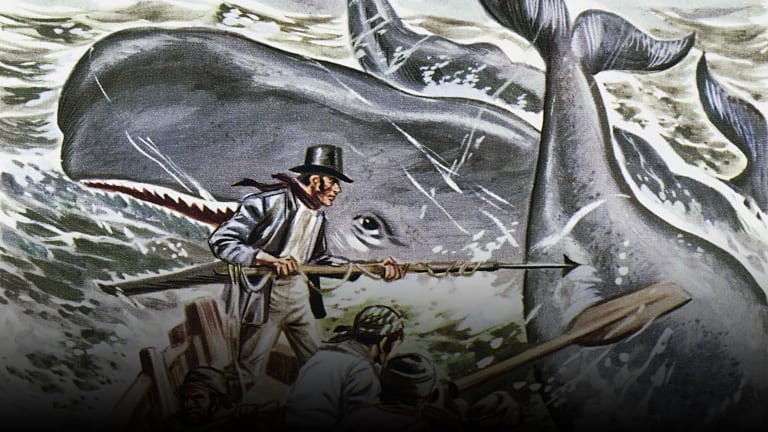
FAQ About Moby Dick

What is the legacy of "Moby-Dick" in literature and popular culture?
"Moby-Dick" has had a significant impact on literature and popular culture since its publication in 1851. Here are some examples:
Influence on literature: "Moby-Dick" has influenced generations of writers, including William Faulkner, Joseph Conrad, and Ernest Hemingway. The novel's use of complex symbolism, stream-of-consciousness narration, and poetic language have become hallmarks of modernist and postmodernist literature.
Cultural references: "Moby-Dick" has become a part of popular culture, with references to the novel appearing in films, television shows, and music. For example, the novel inspired the 1956 film "Moby Dick" starring Gregory Peck, as well as the 2015 film "In the Heart of the Sea" which tells the true story that inspired Melville's novel. The novel has also been referenced in popular songs by artists such as Led Zeppelin, Mastodon, and Iron Maiden.
Symbolic significance: The novel's themes and symbols have become widely recognized as representative of larger cultural and philosophical issues. The white whale, for example, has come to represent the elusive and uncontrollable aspects of nature, while Captain Ahab is often seen as a symbol of obsessive and destructive ambition.
Continual relevance: "Moby-Dick" continues to be read and studied today, and its exploration of themes like obsession, morality, and the human relationship with nature remain as relevant today as they were when the novel was first published. Its legacy in literature and popular culture will likely endure for many generations to come.
